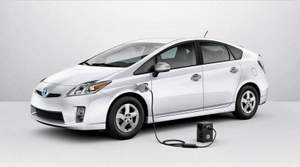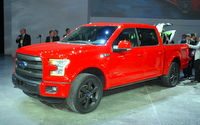Small but top of the list
Small Cars Lead List of Greenest Automobiles.
Maybe it’s the time of year. We’ve got Olympics competition and all of the medals and ranking of athletes and countries that goes with that. We’ve got the Academy Awards and all of those statuettes. So it makes sense that this is the awards season for automobiles as well. Magazines hand out their “Best of” trophies and multitudinous “Top 10” lists. We’ve been guilty of that as well.
So, recognizing that the value of a Top 10 list may be in direct proportion to its focus, we’d like to present the American Council for an Energy Efficient Economy’s Top 10 Greenest Cars and throw in some explanation and commentary. Let’s start with the list:
- Smart ForTwo ED – pure electric – two-seat minicar
- Toyota Prius c – hybrid – subcompact
- Nissan Leaf – pure electric – compact
- Toyota Prius – hybrid

Toyotas dominate the Eco list - Honda Civic Hybrid – hybrid – compact
- Lexus CT 200h – hybrid – compact
- Toyota Prius Plug-In Hybrid – plug-in hybrid –
- Mitsubishi Mirage – gasoline – compact
- Honda Civic Natural Gas – natural gas – compact
- Honda Insight – hybrid – compact
Bubbling just below the list were the conventional Smart ForTwo and the Volkswagen Jetta Hybrid. Our colleague Jim Motavelli of Plugincars.com did some digging into the criteria used to rank the “greenness” of the cars. He found that the weight of a vehicle was a big factor in the non-profit group’s “complex” formula along with manufacturing-related emissions. The ACEEE’s summary of their methodology is explained this way:
“We analyze automakers’ test results for fuel economy and emissions as reported to the U.S. Environmental Protection Agency and the California Air Resources Board, along with other specifications reported by automakers. We estimate pollution from vehicle manufacturing, from the production and distribution of fuel and from vehicle tailpipes. We count air pollution, such as fine particles, nitrogen oxides, hydrocarbons and other pollutants according to the health problems caused by each pollutant. We then factor in greenhouse gases (such as carbon dioxide) and combine the emissions estimates into a Green Score that runs on a scale from 0 to 100. The top vehicle this year scores a 59, the average is 37 and the worst gas-guzzlers score around 17.”
As you can see by the scores, it’s a tough test and no one does that well. ACEEE is 30-plus-year-old nonprofit organization that is very serious about promoting energy efficiency. But I see as the subtext of the ACEEE’s approach a negative view of the private automobile. What kind of ranking has the best contestants scoring 60 percent? The curve with these guys starts low and goes down from there. Cars are bad, but some are worse than others.

Our approach at Clean Fleet Report is a little more accommodating. We believe people need a variety of different vehicles for different uses and different situations. Yes, vehicles have negative environmental impacts, but so do most other activities. We should be aware of them and do our best to minimize or mitigate them, but activity cannot stop because of a heavy vehicle or fuel economy that doesn’t reach Prius levels. We know that full-size pickup trucks are unlikely to ever reach Prius-level MPG; that’s basic physics. They can get better and we’re reporting on that regularly because you should be able to choose the best vehicle for the job.
Not that ACEEE doesn’t also make a nod toward the different uses of vehicles, breaking out the best vehicles by class in their list, but I’m afraid being told the best vehicle in a class scored a 35 out of a possible 100 is not exactly a ringing endorsement – nor does it make anyone who values these ratings a likely buyer.
For my money, I think you need to do what we do here at Clean Fleet Report, evaluate vehicles in the real world and show their capabilities and deficiencies, with a heavy weight given to environmentally positive attributes. But putting a two-seat, 8-foot-long Smart on the same list as a full-size half-ton pickup doesn’t give the reader very valuable information.
Photos by Michael Coates and the manufacturers
Posted Feb. 23, 2014
Related article you might enjoy:
Pickups Pick Up MPG
My Top 10 Cars & Trucks for 2014
Top 10 Fuel Economy Cars for 2014

3 thoughts on “Smart EV Wins Best Eco Car Award”